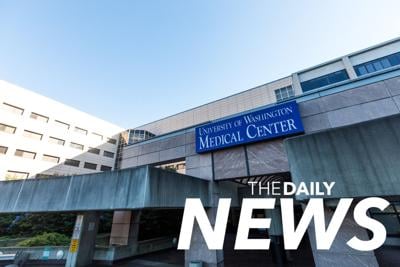A study published by the Journal of the American Heart Association in early April detailed the association between Social Determinants of Health (SDOH) and cardiovascular risk among Asian Americans.
Though the topic has been studied in various minority groups, there has been little data on different Asian American populations. The study was led by Dr. Eugene Yang, a clinical professor of cardiology at UW Medicine, and explores how common SDOH impacts various Asian American populations.
“It masks what really is happening,” Yang said. “When we lump everyone together, [we] can’t really understand why differences in cardiovascular risks occur.”
The study was conducted using data from 2013–2018 in the National Health Interview Survey (NHIS). The data included information from Indian, Chinese, and Filipino groups, as well as a group encompassing Japanese, Korean, Vietnamese, and other Asian individuals. Researchers created an index to study the relationship between favorable and unfavorable SDOH with cardiovascular outcomes for each Asian American group.
Although Asian Americans are faced with the all-encompassing “model minority” stereotype, the data illuminates differences amongst populations. While 54% of Asian American adults holistically hold a bachelor’s degree or higher, only 15% of Bhutanese Americans hold a college degree. Lower education levels is considered a disfavorable SDOH that may lead to greater cardiovascular risk in Asian American adults.
Yang has addressed this by founding the Asian Health Initiative at UW. This provides the opportunity to educate the Asian community regarding cardiovascular risk and provides mentorship to students hoping to pursue research in this field.
“[Without] good access to care or financial security, [there is an] increased risk of diabetes or high blood pressure which can lead to cardiovascular disease,” Yang said.
Many social service programs in King County are working to equalize common SDOH. Elizabeth Kimball, program manager for the Healthy Eating Active Living Unit of health care organization Public Health — Seattle & King County, highlighted the racial equity lens of the program.
“‘[We aim] to make funding available to community-based organizations that serve specific populations in King County based on…data on where that need is,” Kimball said.
Despite promising efforts to improve public health, Dr. Anjum Hajat, associate professor of epidemiology at the UW, spoke toward the complications of retrieving disaggregated cultural data. Some communities prefer to not share personal information due to confidentiality issues or stigma, increasing researchers’ barriers to obtain data.
“Researchers can make sure pre-existing connections exist,” Hajat said. “They must take time, energy, and effort to work with the community directly and build that relationship.”
Reach reporter Melisa Shafiee at news@dailyuw.com. X: @MelisaShafiee
Like what you’re reading? Support high-quality student journalism by donating here.





(0) comments
Welcome to the discussion.
Log In
Keep it Clean. Please avoid obscene, vulgar, lewd, racist or sexually-oriented language.
PLEASE TURN OFF YOUR CAPS LOCK.
Don't Threaten. Threats of harming another person will not be tolerated.
Be Truthful. Don't knowingly lie about anyone or anything.
Be Nice. No racism, sexism or any sort of -ism that is degrading to another person.
Be Proactive. Use the 'Report' link on each comment to let us know of abusive posts.
Share with Us. We'd love to hear eyewitness accounts, the history behind an article.